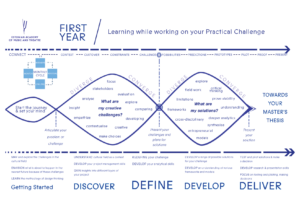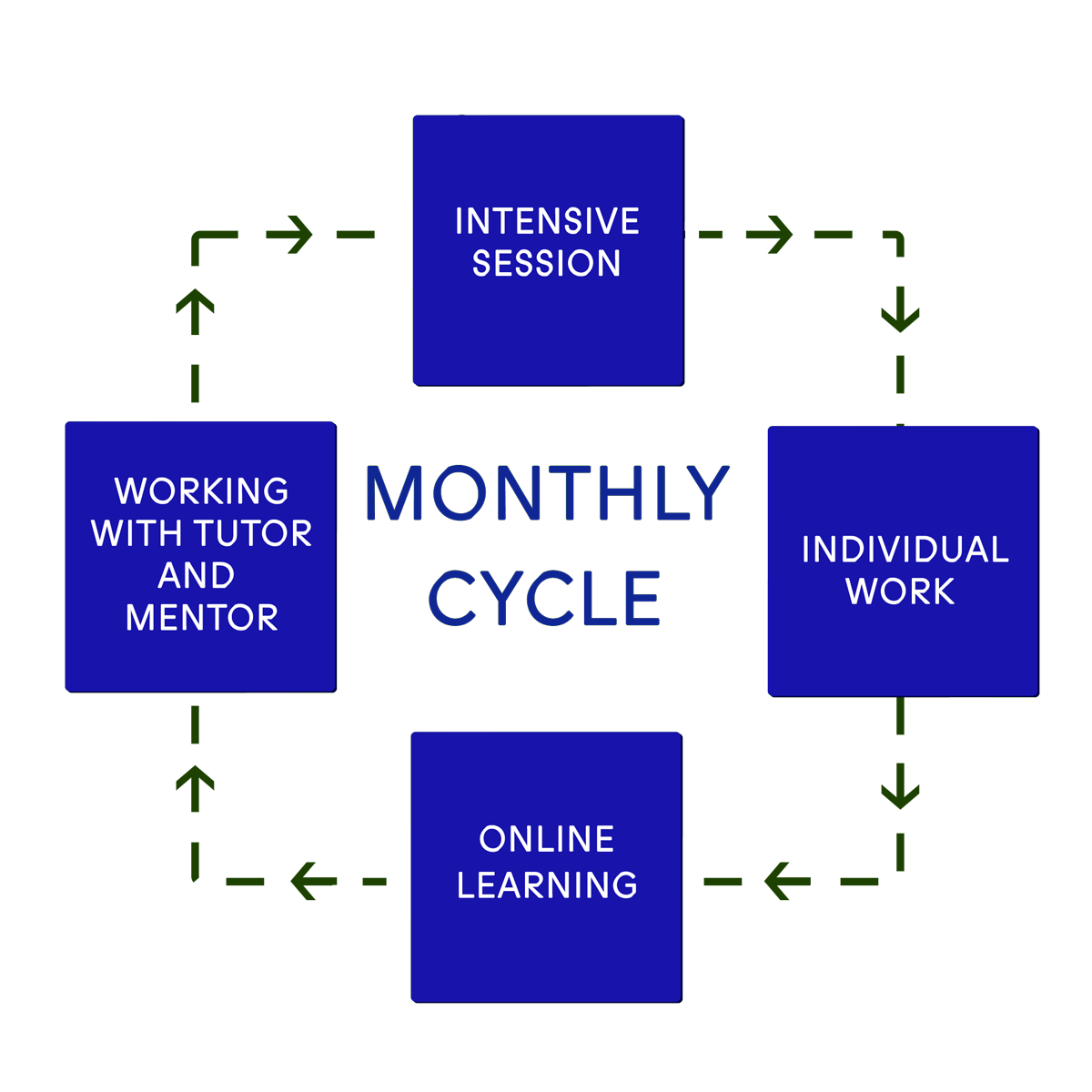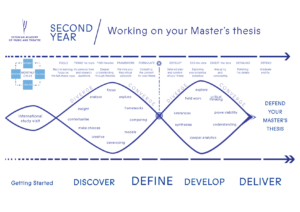The Master of Arts in Cultural Management is a tailored programme for those looking to join an international network of cultural and arts managers. Designed with flexibility in mind, our programme allows you to balance your studies with your professional commitments. The courses incorporate a variety of innovative learning tools and methods. While academically rigorous, the programme emphasizes real-world applications through experiential learning, learning-by-doing, future design, and challenge-based learning. We place a strong focus on collaborative learning, fostering a community of peers who learn from each other, while using feedback loops to continuously enhance the learning experience and deepen student engagement.
Organisation of Studies
Your studies begin at the end of August with an intensive learning seminar designed to immerse new students in the programme’s culture. Held outside Tallinn, this 4-day seminar fosters a strong sense of commitment, community, and collaboration, setting the foundation for the cohort’s shared learning journey.

Each semester follows a structured schedule, with details provided a few weeks before the start via email and Moodle. Studies are structured into several key components, each lasting one week:
I Intensive Learning Seminars: These seminars consist of lectures from a diverse group of instructors, group work, and dedicated time for project work.
II Individual Work: After each seminar, the following week is dedicated to working on your projects, integrating the insights from the seminar and completing assignments.
III Online Courses and Study Visits: The week after the individual work period will focus on online learning through e-learning platforms. Alternatively, study visits or fieldwork may take place.
IV Mentorship and Group Work: In the next week, you’ll continue refining your project with the support of mentors and peers, preparing for the next seminar.

The programme combines mandatory and elective courses, delivered in four-week cycles, to allow for a dynamic, well-paced learning experience. The programme’s first three semesters are intensive, following the previously outlined learning cycle. The fourth semester, however, is primarily dedicated to working on your MA thesis, with the exception of a few seminars.
The first year culminates in the defence of your focus project, where you present the solution(s) you’ve developed. This project will integrate the knowledge, skills, and tools acquired throughout the year, showcasing your ability to apply theory to practice. Your project will be evaluated by a committee according to established criteria.
The second year begins with an intensive international study visit, typically lasting one week and taking place abroad. During this visit, students engage in fieldwork by exploring cultural organisations and conducting a small research project on-site. Here is a sneak peek at our stydy visit to Riga in autumn 2024.
As part of our individual approach, you may be eligible for advanced standing through the VÕTA programme, which recognises your previous studies and work experience.

We believe in empowering students to take ownership of their learning journey. Our programme supports extracurricular activities such as work placements, study visits, cultural interventions within EAMT and beyond, free elective courses both domestically and abroad, volunteering, and conference participation. Funding opportunities are available for these activities (on application), but it is up to you to make the most of these options.
*The “Discover, Define, Dvelop, Deliver” figures are based on Framework for Innovation – Design Council and licenced under Creative Commons CC BY-NC-ND 4.0.





